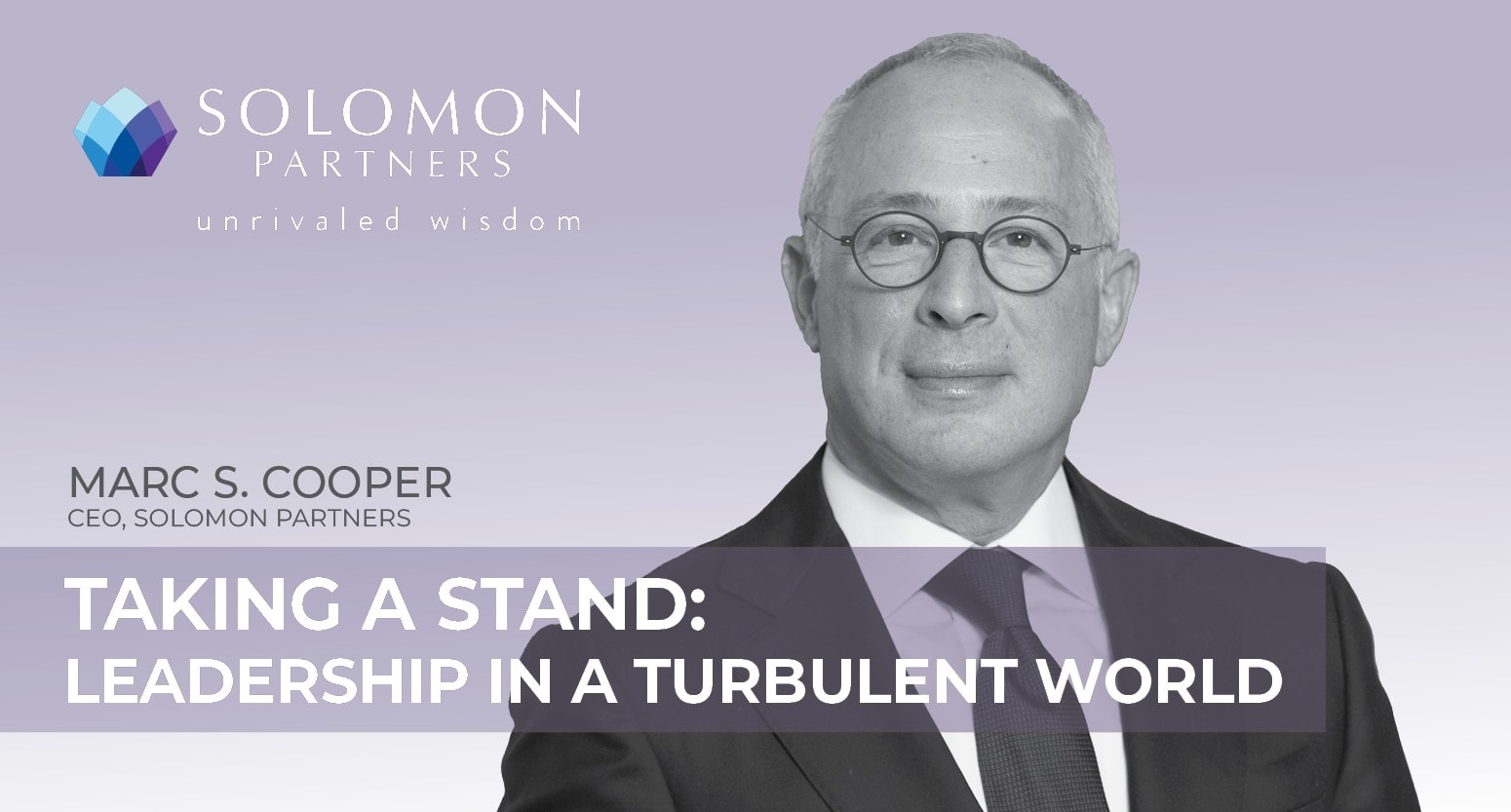Taking a Stand: Leadership in a Turbulent World
by CEO Marc S. Cooper
Some world events are so shockingly cruel, so infused with unbridled and irrational hatred, that they require nothing less than our unequivocal condemnation. The horrific attack by Hamas against Israeli civilians on October 7 is one such event.
In the conversations I have had with many of you, I have heard your concerns and sense of alarm about the unfolding situation in the Middle East. The Solomon Partners community stands united in our resolve to speak out against acts of terror and violence, regardless of where they occur, and regardless of whether they are incited by antisemitism, Islamophobia or any other strain of prejudice.
The aftermath of such traumatic geopolitical events often raises the question: What is the appropriate role of corporate leaders in commenting on political events and global crises?
I have thought long and hard about this issue, and I would like to share my thinking, since it delves into the very essence of our firm’s culture and our sense of social responsibility.
Historically, corporate leaders have been primarily focused on steering their financial institutions and companies toward long-term prosperity, ensuring that shareholders and stakeholders reap the rewards of their investments. That is the essential role of corporate actors in a capitalistic system, and obviously continues to be a core responsibility.
What is changed in recent years is the gravitational pull of political and social trends that has widened the spectrum of demands bearing down on corporate leaders. Social media platforms, meanwhile, have raised the emotional temperature of political discourse by billions of users globally. To some, we should now expect far more from CEOs than just business performance excellence.
It goes without saying that the value system of this firm extends well beyond winning new clients and revenue growth. We have always been committed to giving back to the communities where we work and live through volunteer projects and charitable events, as well as Solomon Partners’ philanthropy program.
Yet do CEOs really have a responsibility to comment on every political and international event of the day? I think one needs to make a careful distinction between unequivocally heinous acts like the civilian massacre in Israel, or the 9/11 terrorist attacks that touched so many lives here in New York, and more routine policy issues that shape political debates in the US and abroad.
In my view, CEOs must tread cautiously, ensuring that her or his public platform is not used to champion policy issues that do not directly influence their business, or have yet to be decided legislatively or judicially. Jumping into a robust political debate can be a slippery slope. Everyone has their own view of who’s right and who’s wrong.
I have seen other companies wander carelessly into partisan skirmishes and political controversies they have no essential business reason to be part of. Such distractions are not helpful, and in some cases can even be detrimental to the financial health and reputation of a corporate or financial enterprise.
CEOs are not politicians or diplomats, and pretending otherwise is risky. In my honest opinion, corporate leaders must choose their causes wisely, addressing only those issues that unquestionably transcend the norms of civilized behavior, or are gross violations of human rights. In these cases, each one of us has a moral responsibility to raise his or her voice against injustice.
One significant takeaway that has become clear: traumatic geopolitical events, even those occurring half a world away, can undermine the emotional well-being and sense of security of those we work with.
Sadly, violent conflict and widespread civilian deaths are now a reality in both Eastern Europe and the Middle East. There are certain things in life we have little control over. Yet we can make a difference at an individual level, by reaching out with support and empathy to those whose lives have been touched by these high-intensity crises. In such trying times, a little bit of humanity can go a long way.



